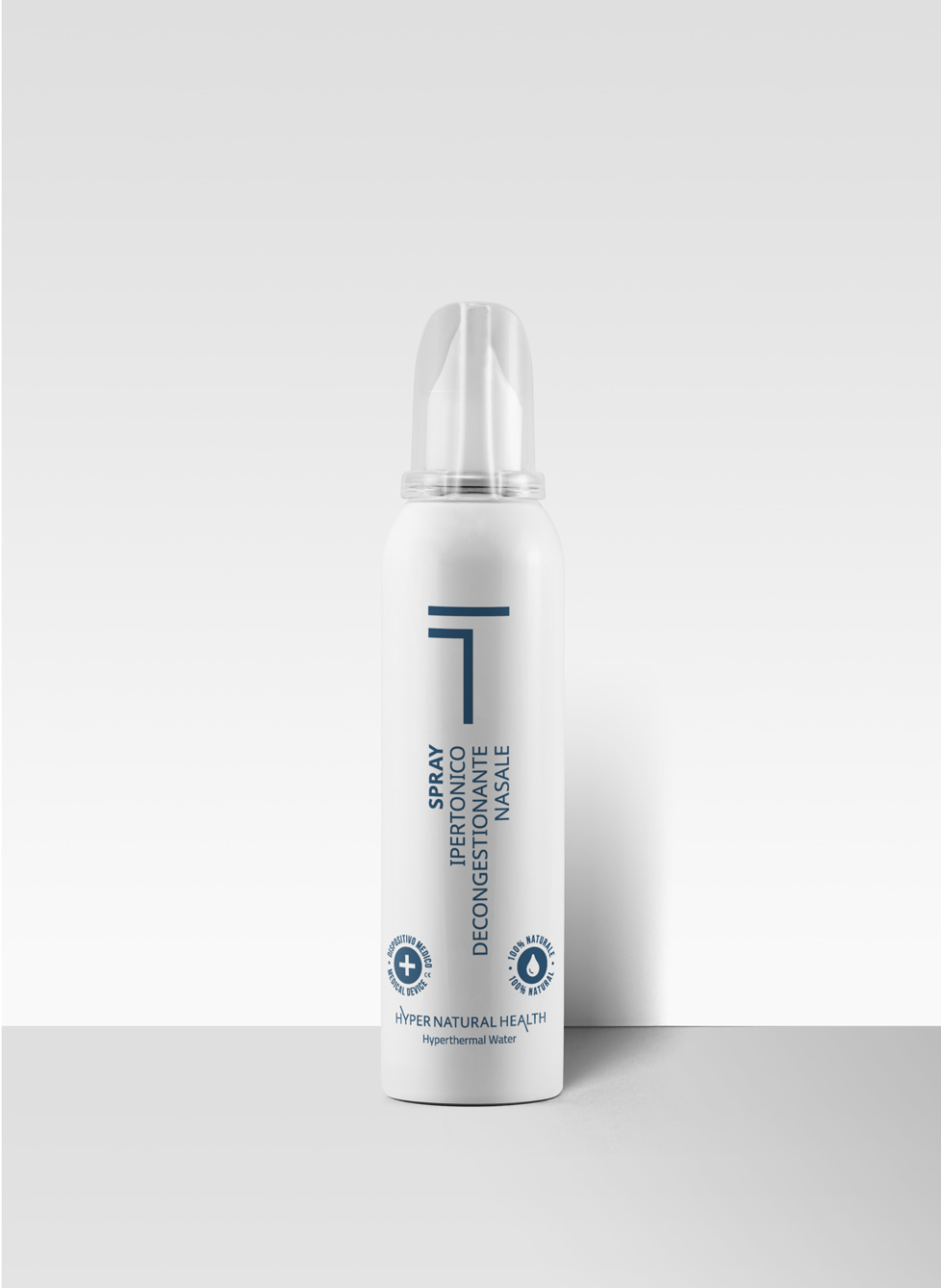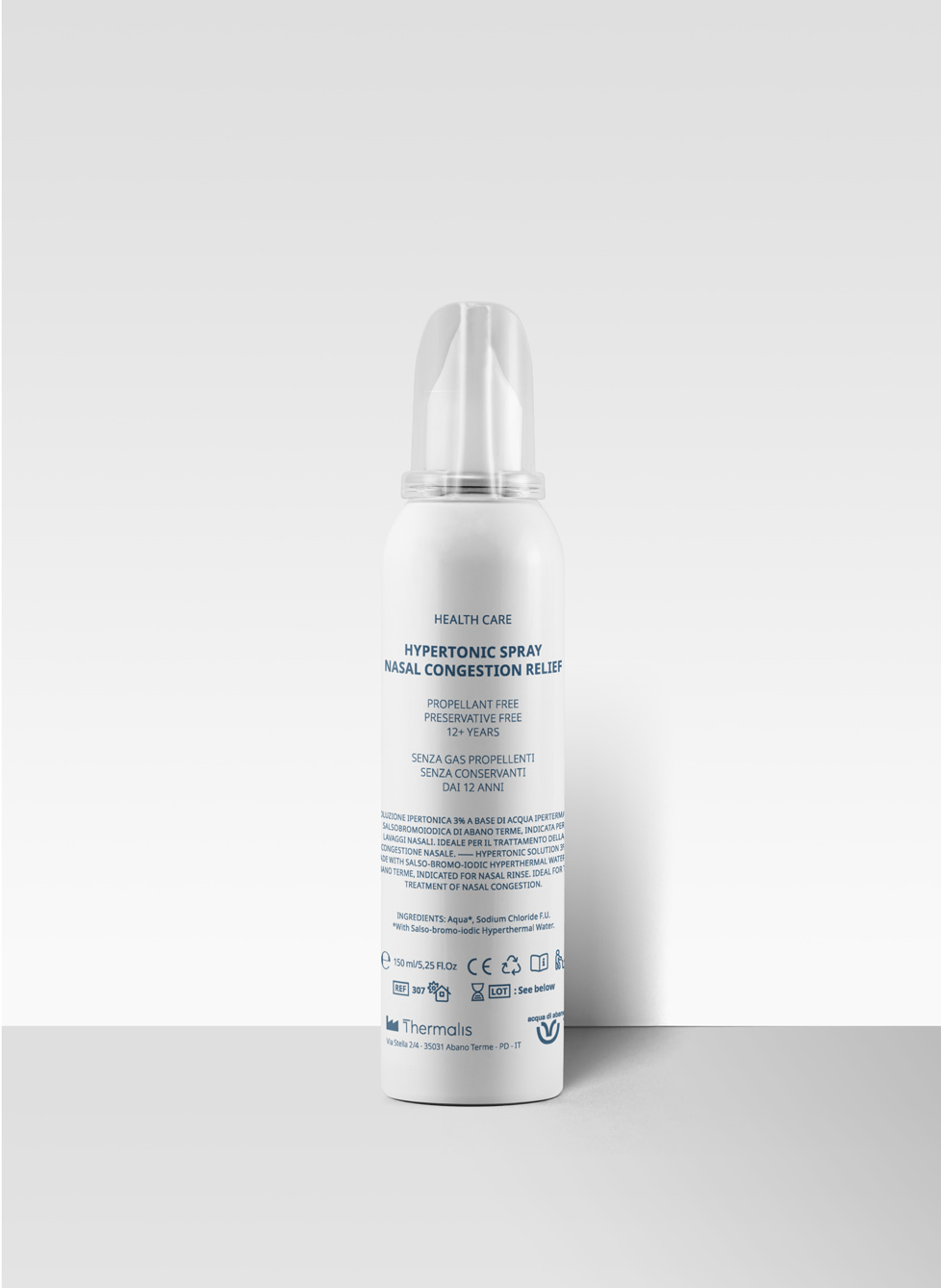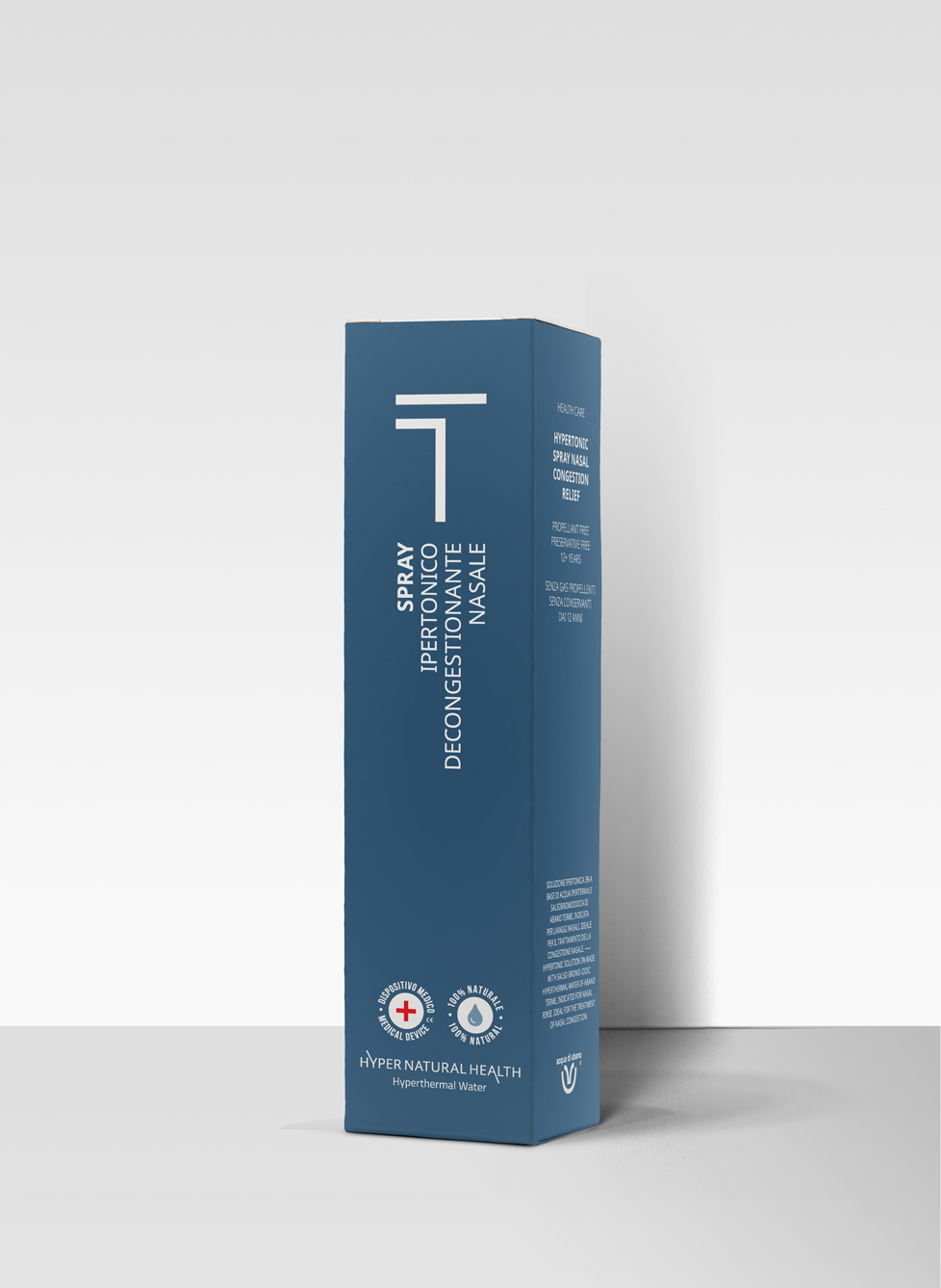Hypertonic Nasal Spray with Hyperthermal Water – 150ml
Medical device, nasal decongestant based on Hyperthermal Water from the Euganean Thermal Basin.
The Hyperthermal salso-bromo-iodic water of the Euganean Thermal Basin contains sodium, chlorine, bromine, iodine and other important trace elements essential for biochemical processes. Thermalis® hyperthermal water is extracted from one of the deepest therapeutic wells in the Euganean territory and is used as the basic element of all products. Its osmotic effect helps restore the physiological state of the mucous membranes and decongest a blocked nose, promote breathing in cases of colds, rhino-sinusitis, allergic rhinitis in the acute and chronic phase, and constitutes a physiological and natural product.
The high salt concentration, equivalent to 3%, gives Thermalis® nasal spray hypertonic properties. This characteristic creates a pressure difference between the solution and the mucous membranes, producing an osmotic effect that facilitates the drainage of the liquid, thus relieving nasal congestion.
Nasal irrigations with Euganean Hyperthermal Salso-bromo-iodic Waters offer various benefits:
- Removes mucus, crusts and other debris from the nasal cavity.
- Decongests and moistens the mucous membranes, helping to restore permeability and optimal aeration of the paranasal sinuses.
- Improves mucociliary clearance, i.e. the efficiency of microcilia beating and the standardised transport of mucus from the paranasal sinuses to the nasopharynx.
- Mechanical elimination of allergens.
- Reduces swelling of the nasal mucosa in the case of colds, rhinosinusitis and allergies.
- Moisturises and cleans the nasal cavity.
- Helps to reduce pressure in the nasal cavity.
Instructions for use:
With your head upright and the spray in an upright position, insert the nozzle into one nostril. Press the valve and simultaneously inhale through the nose. Repeat the operation in the other nostril. Shake before use. Rinse dispenser after use.
Adults: give 2 to 3 sprays per nostril 2 to 3 times a day, leaving the nasal solution to act for a few seconds before blowing your nose, if necessary.
Contains: Hyperthermal water with a naturally soothing and proven effect, extracted from the therapeutic springs of the Euganéen thermal basin. As its name suggests, this salso-bromo-iodinated water is composed mainly of sodium chloride, iodine and bromine, the latter in the form of iodides (I-) and bromides (Br-), as well as other substances of therapeutic interest such as calcium, magnesium, sulphates, bicarbonates and sulphides.
3% pharmaceutical grade sodium chloride.
150 ml gas-free spray bottle.
Ingredients : Salso-bromo-iodic hyperthermal water, sodium chloride F.U. Preservative-free.




Characteristics
According to the Marotta and Sica medical classification, hyperthermal water from the Euganean Thermal Basin is defined as:
– Salso-bromo-iodic: rich in natural trace elements with a bio stimulant, restructuring, naturally soothing and anti-free radical action.
– Hyperthermal: due to the high temperature at the wellhead, reaching 86.5°C, and the significant fixed residue at 180°c (approximately 6 g/l).
As proved by university research, these characteristics make Hyperthermal Water a unique spring among thermal waters, and represent an authentic biochemical system, showing outstanding effectiveness.
Composition
Hyperthermal Water from the Euganean Thermal Basin. As its name suggests, this Salso-bromo-iodic Water is mainly composed of sodium chloride, iodine and bromine, the latter in the form of iodides (I-) and bromides (Br-).
There are also other substances of therapeutic interest such as calcium, magnesium, sulphates, bicarbonates and sulphides.
Active ingredients
Macroelements, Microelements, Sodium Chloride F.U. 3%
Mechanism of action
-Antiseptic action: due to the antiseptic and soothing properties of certain trace elements (iron, iodine, copper);
– Soothing action: general and local with stimulation of tissue regeneration and healing processes (manganese, zinc and selenium which decongest the mucous membranes);
– Anti-oedema and resolving action: the high total salt concentration (equal to 3%) gives the product its hypertonic properties. This creates a pressure difference between the solution and the mucous membranes (osmotic effect which helps to drain the liquids thus relieving the stuffy nose). The richness of the water generates a current of fluids from the deep layers of the mucous membrane outward capable of conveying and eliminating corpuscular elements (micro-organisms, pollutants, etc.) and the products of inflammation (catabolites and enzymes);
Stimulation of the immune system:
Salso-bromo-iodic water stimulates the ERS and the production of secretory and circulating immunoglobulins. This action has also been emphasized in exudative-catarrhal diathesis where much of the
pathogenesis seems to lie in the absence of responses from organic mechanisms. This effect is due to the properties of halogens such as chlorine, iodine and bromine to amplify even hundreds of times the action of certain lysosomal lytic enzymes (vesicles which engulf the pathogens which attack the cell and which, thanks to a complex mechanism, get simpler molecules that are functional again).
A question, an advice ? feel free to contact us
Thank you for your interest you have shown in Thermalis.
Do you have a question or an advice?
We are at your disposal.